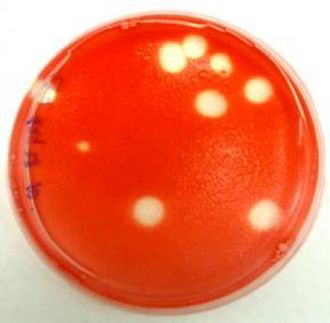Cholesterol-busting bug with a taste for waste
Advertisement
A novel species of bacteria with cholesterol-busting properties has been discovered by scientists at the Universidad Complutense de Madrid. Dr Oliver Drzyzga and colleagues isolated the new bug, called Gordonia cholesterolivorans , from sewage sludge. Their findings are reported in the International Journal of Systematic and Evolutionary microbiology .
A steroid found in all body tissues, cholesterol is used in the cosmetics and pharmaceutical industries as stabilizer, emollient and water-binding agent. As a consequence, steroids - including cholesterol - are a major group of contaminants in urban sewage residues.
Gordonia bacteria have only been classed as a separate group of bacteria since 1997 but they have already proved useful as they are able to degrade a wide range of environmental pollutants including phthalates (used in plastics), rubber and hazardous compounds such as the explosive hexogen (cyclotrimethylenetrinitramine). Gordonia cholesterolivorans ' ability to break down cholesterol means that it could be used to clean up contamination.
Dr Drzyzga and co-workers are studying the genetics of this novel bacterium to genetically modify strains that might also be used to synthesise new and industrially useful breakdown products of cholesterol.
"New steroid compounds made by these bacteria may find applications in the pharmaceutical and medical sectors in the future, but as some Gordonia species are pathogenic to humans it is unlikely that they could be used directly to treat high cholesterol-related conditions in humans", said Dr Drzyzga.
"We are trying to work out exactly how Gordonia cholesterolivorans metabolises cholesterol so that we can identify and construct metabolically engineered strains that are more rapid and effective in breaking down cholesterol."
Most read news
Other news from the department science

Get the life science industry in your inbox
By submitting this form you agree that LUMITOS AG will send you the newsletter(s) selected above by email. Your data will not be passed on to third parties. Your data will be stored and processed in accordance with our data protection regulations. LUMITOS may contact you by email for the purpose of advertising or market and opinion surveys. You can revoke your consent at any time without giving reasons to LUMITOS AG, Ernst-Augustin-Str. 2, 12489 Berlin, Germany or by e-mail at revoke@lumitos.com with effect for the future. In addition, each email contains a link to unsubscribe from the corresponding newsletter.


























































